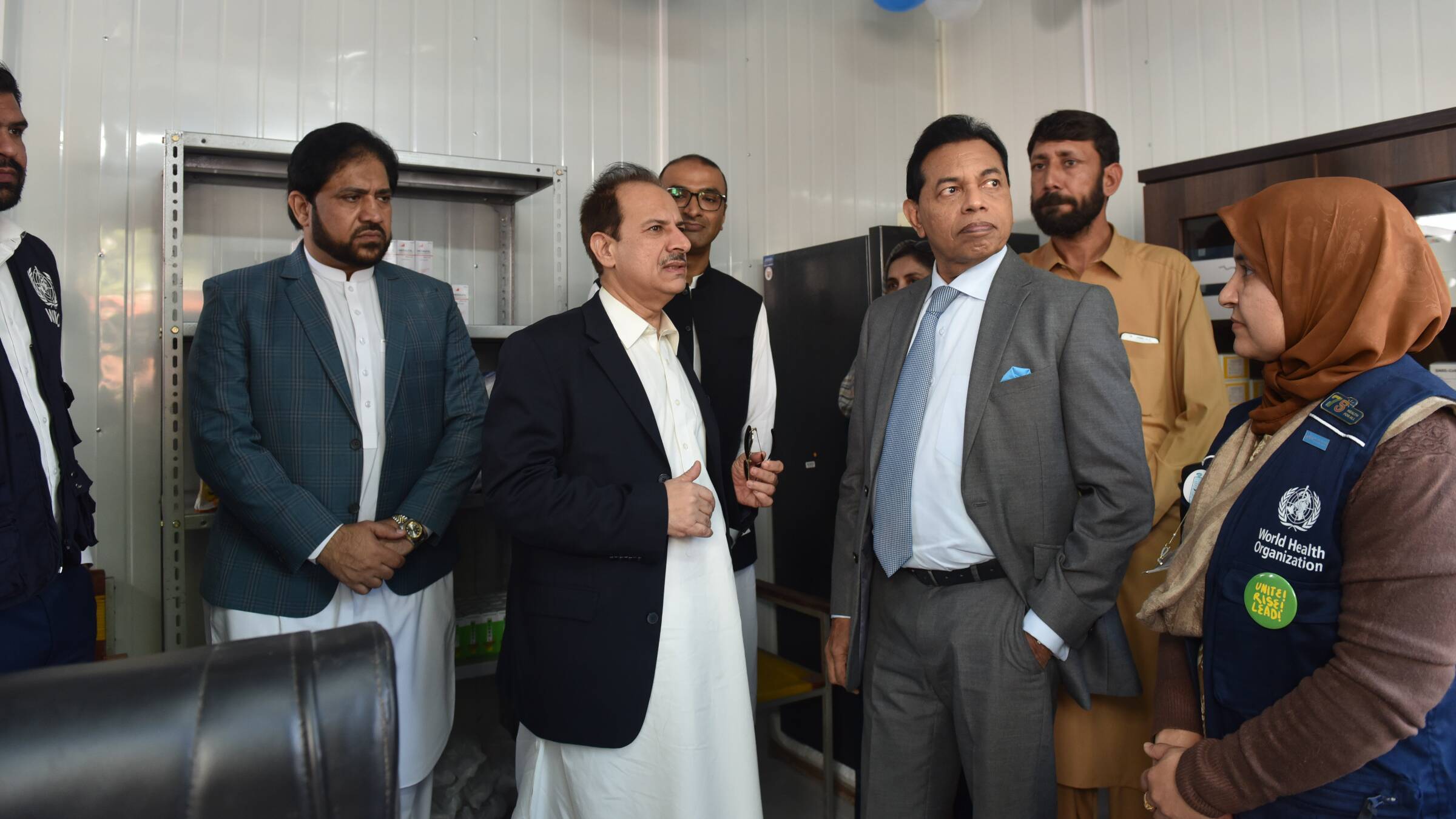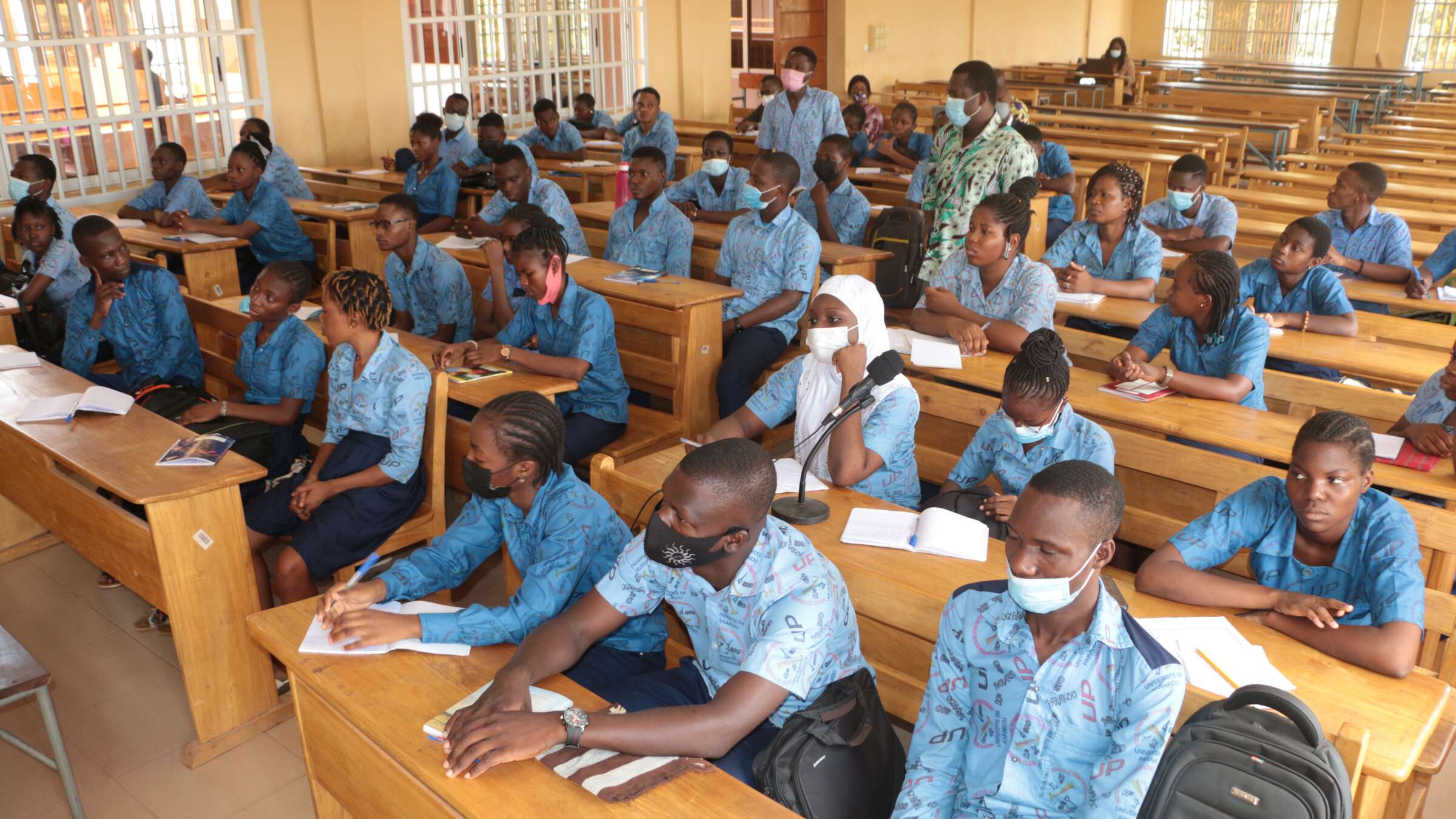
INVESTMENT ROUND: IMPACT STORY
Bhutan transforms health care delivery for non-communicable diseases
WHO and Bhutan implement a package of NCD interventions

A health assistant attends a home-bound patient as part of routine outreach care in Tsirang district, Bhutan.
14
districts’ health workers trained
22
professionals trained in holistic child development
50 000
patient goal
Bhutan is confronting a public health shift characterized by an aging population and a transition from communicable to noncommunicable diseases (NCDs) which account for 69 percent of all deaths.
Focused on hypertension and diabetes, the Ministry of Health standardized treatment protocols in primary healthcare settings.
WHO collaborated with the government to develop and implement a package of NCD interventions.
The Service with Care and Compassion Initiative (SCCI) was launched in 14 districts, adapting the WHO package of essential noncommunicable (WHO PEN) disease interventions for primary health care.
The SCCI employs multifaceted strategies: robust team building, reaching out to provide home-bound services, refills of medicines, recall and reminders, responsive referrals, reliable and people-centred laboratory diagnosis, and real-time monitoring and supportive supervision.
WHO provided technical and financial support to the Khesar Gyalpo University of Medical Sciences of Bhutan to develop online PEN training modules and virtual equipment was distributed to 49 hospitals for district training. By 2023, health workers in 14 districts had been trained in a hybrid onsite and online format.
To further standardize care, the hypertension and diabetes protocol was officially launched on 21 September 2023. This aligned with Bhutan’s national goal of managing 50 000 patients with these conditions by 2025.
The Initiative has transformed healthcare delivery, especially in managing hypertension and diabetes.
Within health facilities there have been improvements in access to medicines, transportation, service documentation, referral processes, and patient flow.
Patients are now proactively screened for NCD-related risks during healthcare visits, with assessments including body mass index, blood pressure, and blood sugar levels. Depending on their risk profile, they are then either initiated on a treatment plan or provided with personalized medical advice. To further enhance community access, WHO has also supplied bags and essential equipment for the transportation of medicines to home-bound patients who are provided care in their homes.
→ Read the full story: Bhutan transformed health care delivery for non-communicable diseases
Return on investment
A fully funded WHO will enable the Organization to save 6.5 million lives through treating and preventing NCDs by 2028.
Transforming health care delivery for noncommunicable diseases in Bhutan is an example of WHO delivering on improving equity in access to noncommunicable diseases, contributing to WHO's Fourteenth General Programme of Work (GPW 14), strategic objective 4.1.
Funding the future
WHO’s support to Bhutan to transform NCD services wouldn’t have been possible without funding.
To continue to support initiatives like this, WHO needs sustainable financing, that is, predictable, flexible and resilient. This will allow WHO to have the greatest impact where it is needed most. Please support the WHO Investment Round.
/invest-visual-investing.png?sfvrsn=dbf748b9_20)

/ir-pie-chart-ncds.tmb-1920v.png?sfvrsn=51e2fccd_2)

